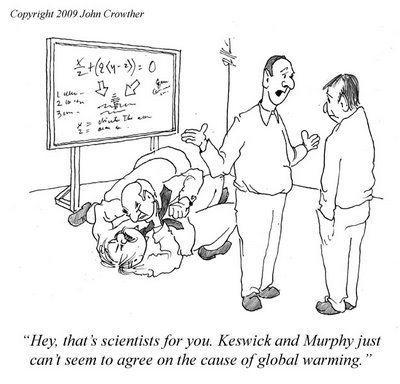
Source: John Crowther
There are two ways to approach scientific theories. The first is whether they affect our day-to day-lives. It doesn’t matter if the only thing you remember about Einstein’s theory of relativity is it somehow involved Yahoo Serious because most of us are unlikely to travel fast enough to notice the dilation of time. You get told about is once in Year 12 physics and then you go back to figuring out how to buy enough booze for Schoolies Week.
However, suppose you spend Schoolies Week at Rottnest Island off the coast of WA. When you try to step off your girlfriend’s dad’s boat too quickly it pushes in the opposite direction, leaving you bobbing in the Indian Ocean. That’s Isaac Newton’s third law of motion and you won’t break it again.
Another view is whether the theory stirs a lot of controversy in the wider population. Depending on who you ask, evolution is either a sensible explanation of humanity’s origins or the most sinful happening since Eve said “I feel like an apple”. Charles Darwin’s hypothesis was so interesting it even inspired a high brow English film, which I believe was called Primates and Prejudice.
So can anyone name a scientific theory that both affects us and gets a lot of people hot and bothered? I’ll give you a hint, it is, or was, the greatest moral challenge of our time.
Climate change, like space exploration and cloned sheep, is a rare example of a scientific theory entering our mainstream conscious. It is the rock and roll of research. It is the scientific equivalent of Barack Obama, Lady Gaga and Game of Thrones all rolled in to one. To misquote noted conservationist Michael Dundee “That’s not a peer-reviewed explanation of the continuous warming of the climate since the industrial revolution, this is a peer-reviewed explanation of the continuous warming of the climate since the industrial revolution ”.
Actually, the rock and roll metaphor is quite apt. Broadly speaking, conservative types think emission trading schemes are just a load of noise. Hardcore fans are ready to quit their jobs and follow Tim Flannery around the country. And the rest of us just want a recycling plan you can dance to to.
For all the stereotypes of rational professors in white coats, scientists can mix it rock stars when it comes to public spats and name calling. In 1990 biologist Richard Dawkins engaged in a Notorious B.I.G-style feud with science writer Stephen Gould over a patch of fossils discovered more than 50 years earlier. Dawkins called Gould “disingenuous” and accused him of misrepresenting the facts. In scientific circles this is the equivalent of calling your momma fat.
There is a good reason why scientists argue so frequently. In the same way you don’t proclaim the West Coast Eagles premiership contenders because they beat North Melbourne, you don’t accept climate change because someone says “hey guys, it’s hotter now than it was in 1984″. To win acceptance for your theory means you have to counter often long-established beliefs. You need to gather a large body of evidence and conduct experiments that can be recreated so others can test this evidence. You need to do the academic equivalent of beating Sydney and Hawthorn and even then people still won’t tip you.
This gladiatorial process occurs every time a new idea is suggested in the scientific community. The wider public never hear about it because they are focussed on things like interest rates or drugged footballers. So these cerebral conflicts are like a Fight Lab, where the first rule is you never talk about Fight Lab and the second rule is always have a control group.
But climate change’s rock star-status makes is different. For the last two decades every study, survey and census has been breathlessly reported on, even if the data has yet to be analysed. It’s top of the charts so any story about impending environmental catastrophe has found traction in the wider public.
The appetite for information on the subject is so voracious that everybody with an opinion has been interviewed, profiled and probably trended on twitter.
The increased public interest just means scientist have been forced to have their arguments in public, like two cousins fighting right in the middle of Christmas lunch.
